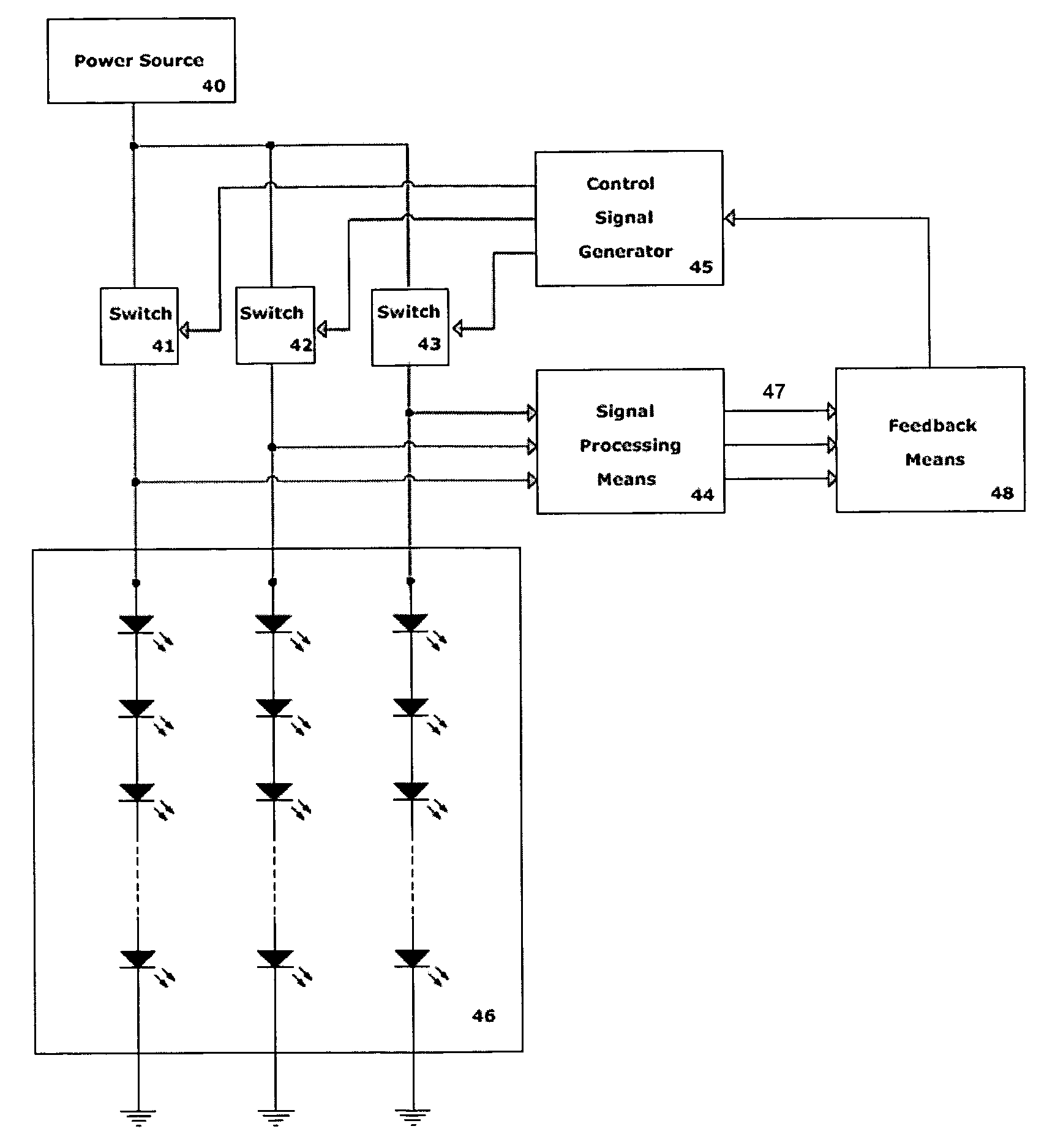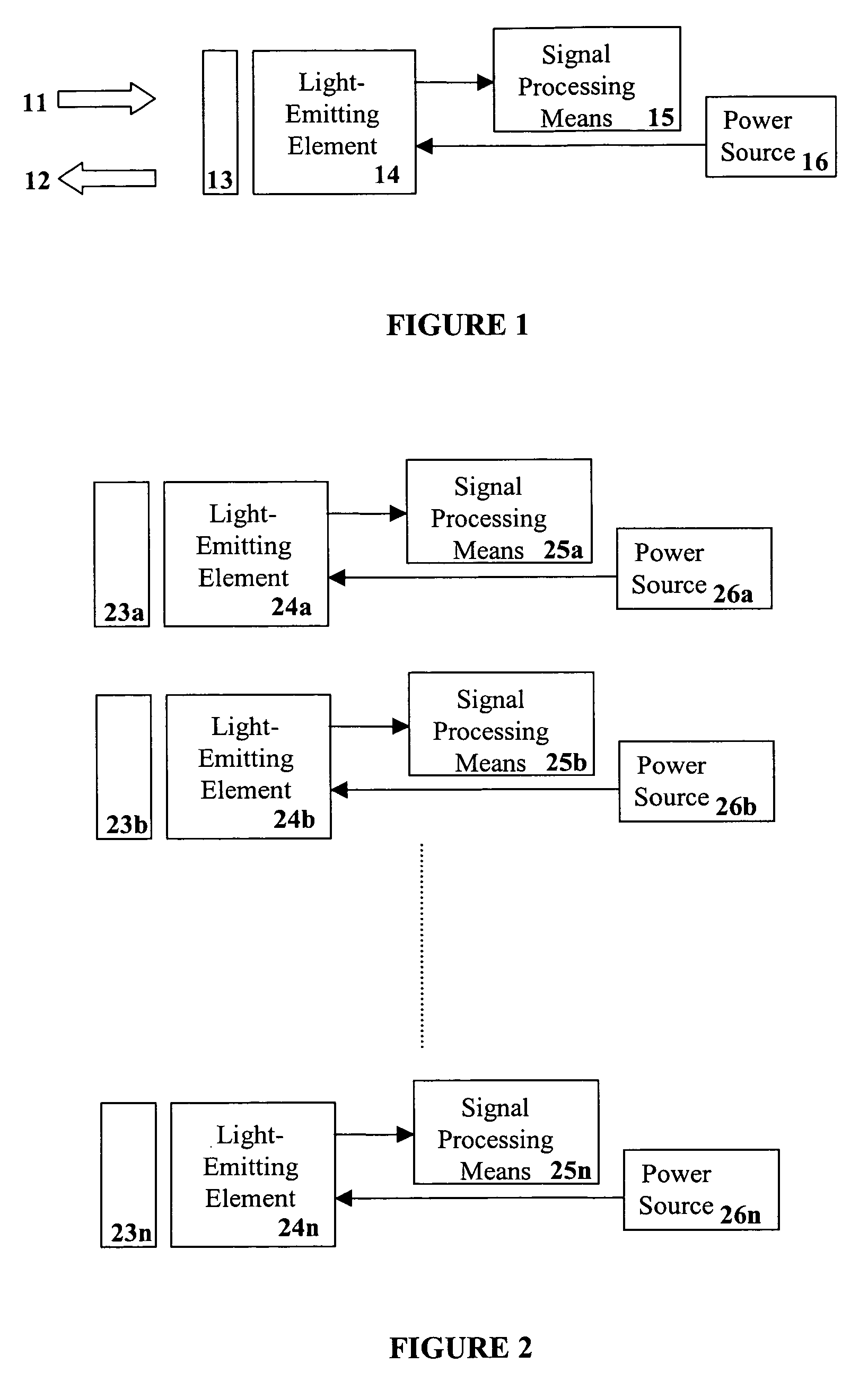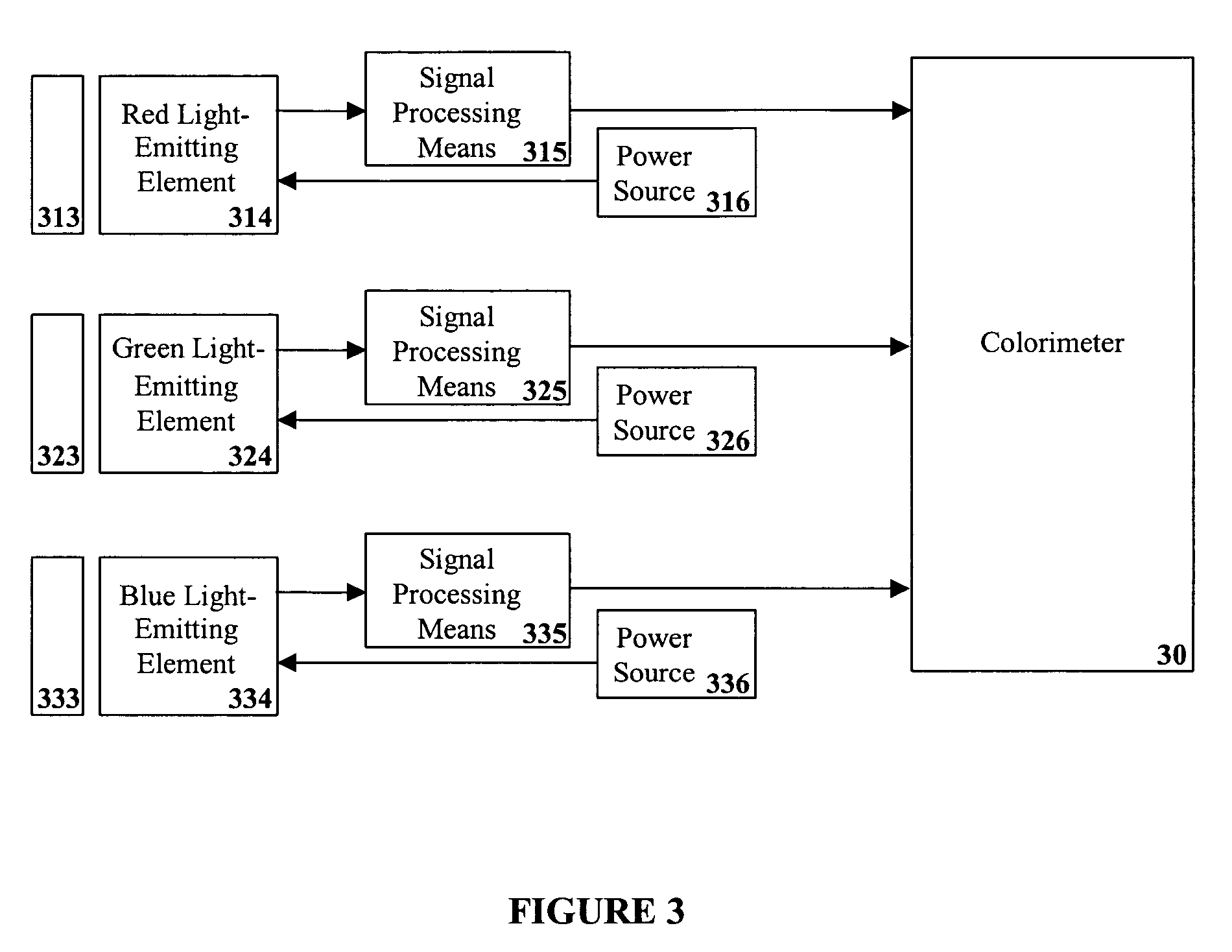Lighting system including photonic emission and detection using light-emitting elements
a light-emitting element and light-emitting technology, applied in the field of light-emitting elements, can solve the problems of large hardware assembly, complex lighting system, difficult measurement, and large hardware assembly,
- Summary
- Abstract
- Description
- Claims
- Application Information
AI Technical Summary
Benefits of technology
Problems solved by technology
Method used
Image
Examples
embodiments
[0035]In one embodiment of the present invention as illustrated in FIG. 1, a single light-emitting element 14 receives switched (ON / OFF) power from power source 16. When in the ON state, the light-emitting element is activated and emits light 12. When in the OFF state, the light-emitting element 14 serves as a photodetector and measures the incident radiant flux 11 due to ambient light, for example. An optional filter 13, for example, a band pass filter that is substantially transparent to the spectral distribution of the emitted light may be employed to modify the spectral responsivity of the light-emitting element when operated as a photodetector. The detected signal is then provided to a signal processing means 15 for example, an amplifier circuit and / or an A / D converter. In another embodiment a plurality of light-emitting elements may be used to detect ambient light.
[0036]In another embodiment of the present invention as illustrated in FIG. 2, a plurality of light-emitting eleme...
PUM
 Login to View More
Login to View More Abstract
Description
Claims
Application Information
 Login to View More
Login to View More - R&D
- Intellectual Property
- Life Sciences
- Materials
- Tech Scout
- Unparalleled Data Quality
- Higher Quality Content
- 60% Fewer Hallucinations
Browse by: Latest US Patents, China's latest patents, Technical Efficacy Thesaurus, Application Domain, Technology Topic, Popular Technical Reports.
© 2025 PatSnap. All rights reserved.Legal|Privacy policy|Modern Slavery Act Transparency Statement|Sitemap|About US| Contact US: help@patsnap.com



